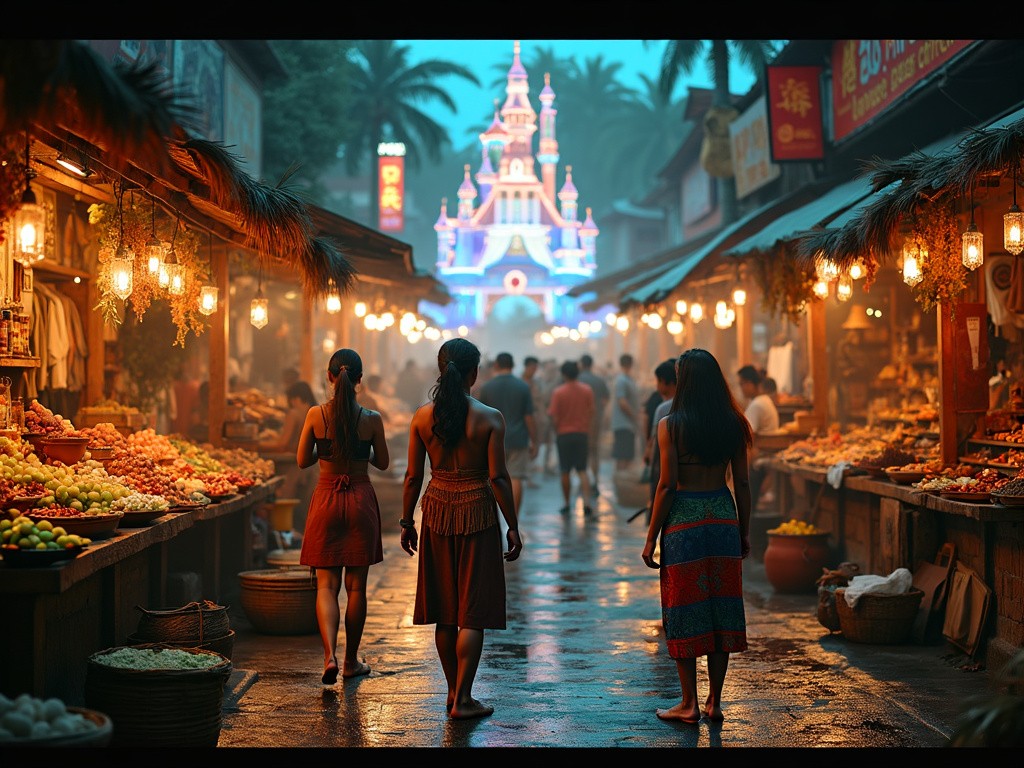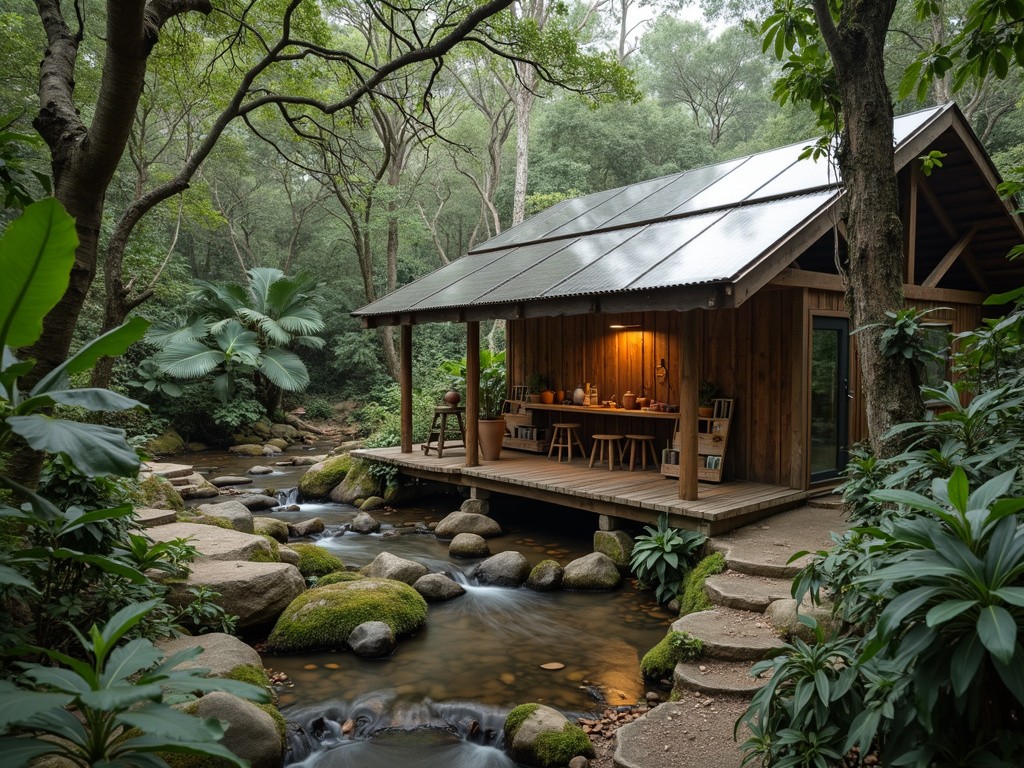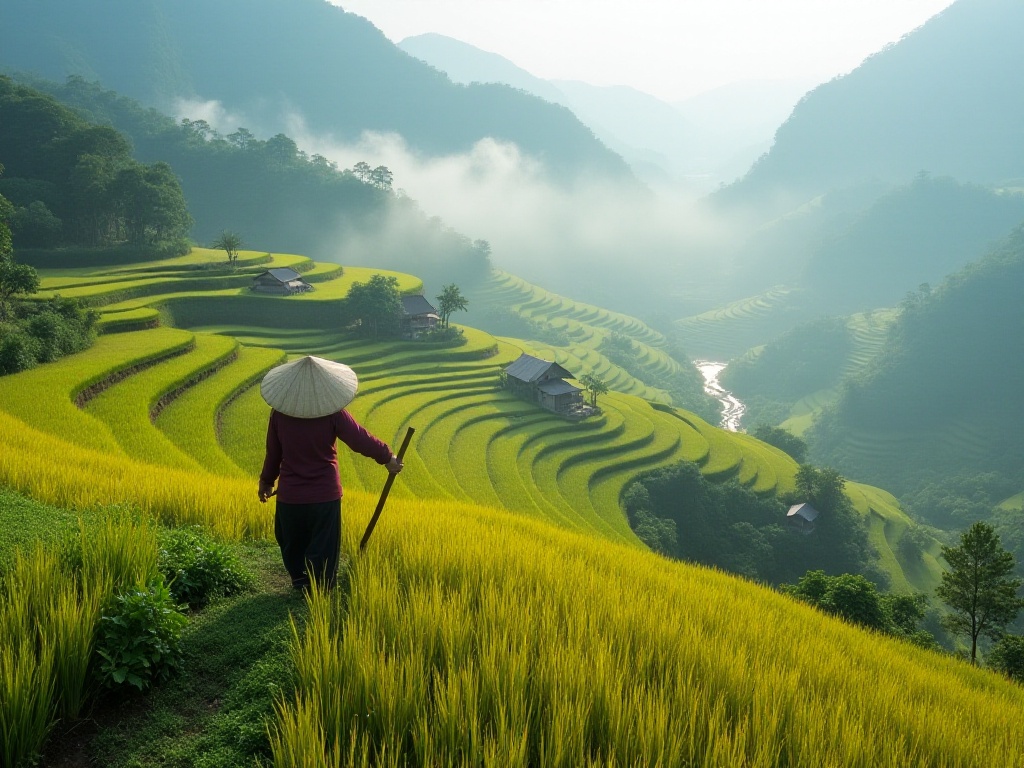Opening Thoughts
Every time I scroll through my social media feed, I see photos of the same popular tourist spots, a stream of trending restaurants and landmarks - it gets so boring after a while! This isn't my ideal way of traveling. Having visited over 20 countries and taken countless photos over the years, what truly moves me has never been those popular attractions, but rather the small moments shared with locals.
For instance, in Istanbul, Turkey, I met a coffee shop owner who not only treated me to authentic Turkish coffee but also taught me how to read coffee grounds. Although I couldn't understand a word of his fortune telling, his serious demeanor was fascinating. Then in Hoi An, Vietnam, a tailor insisted on having me over for authentic Vietnamese spring rolls and taught me how to wrap them. These warm little moments are what make traveling most meaningful to me.
What is Cultural Experience
When cultural experience is mentioned, many people's first thought is "Oh, it's just visiting museums to see artifacts or going to temples to pray." However, true cultural experience goes far beyond that. It should be a comprehensive, immersive experience - mindfully feeling the local rhythm of life and attitudes.
Take my experience in Kyoto for example. On my first visit, I rushed through with a tour group: checking off Kiyomizu Temple, taking photos at the Golden Pavilion, then hurriedly buying souvenirs. But on my second visit, I chose to stay in a traditional machiya, learned flower arrangement from the landlady, and experienced the tea ceremony. Quietly kneeling on the tatami, watching the teacher meticulously prepare the tea utensils, and slowly savoring the bitter-sweet matcha - that's when I truly felt the "wabi" and "sabi" of Japanese culture.
In Chiang Mai, Thailand, I wasn't content with just shopping at night markets anymore. Instead, I enrolled in a local cooking class. Starting from shopping for fresh ingredients at the morning market, learning from a Thai chef how to select the freshest holy basil leaves, how to pound curry paste with a mortar, and even precisely controlling the wok temperature. The tom yum soup I made absolutely beats any Thai chain restaurant!
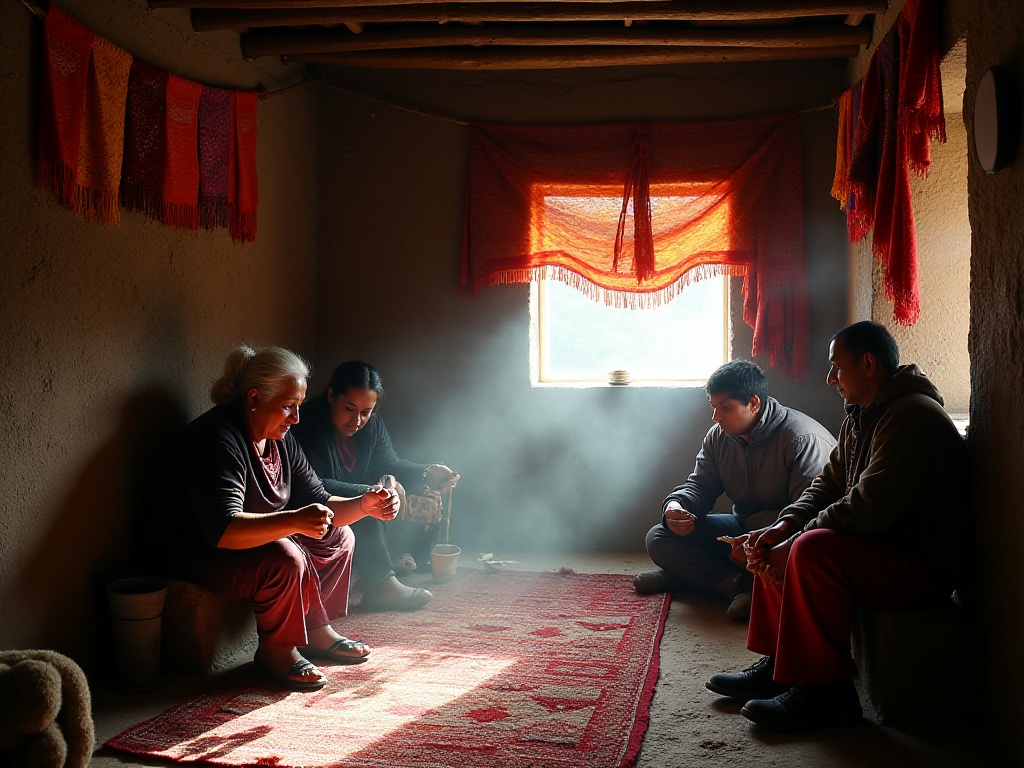
Unforgettable Experiences
My experience in Peru still warms my heart when I think about it. In a small village outside Cusco, through a homestay program, I lived with a local farming family. The house was made of adobe with a thatched roof - what many might consider basic conditions, but it gave me the most authentic experience.
I remember the first morning, waking up to the smell of corn tortillas. The grandmother had already gotten up to prepare breakfast. Her tortillas weren't machine-made; she ground the corn into flour using a traditional stone mill, then shaped each one by hand. Watching her wrinkled fingers skillfully pat the dough into thin tortillas, I was eager to try. As expected, mine turned out either too thick or uneven, but grandma always smiled and said, "Very good, very good."
In the evenings, the whole family would gather around the earthen stove. The burning firewood provided warmth and was used to roast corn and potatoes. Grandfather was a great storyteller, and although I couldn't understand Quechua, we managed to communicate through translation apps and body language. He told me many legends about the Inca Empire, like the construction of Machu Picchu, the origin of the Sun Temple, and how the Incas used knots to keep records.
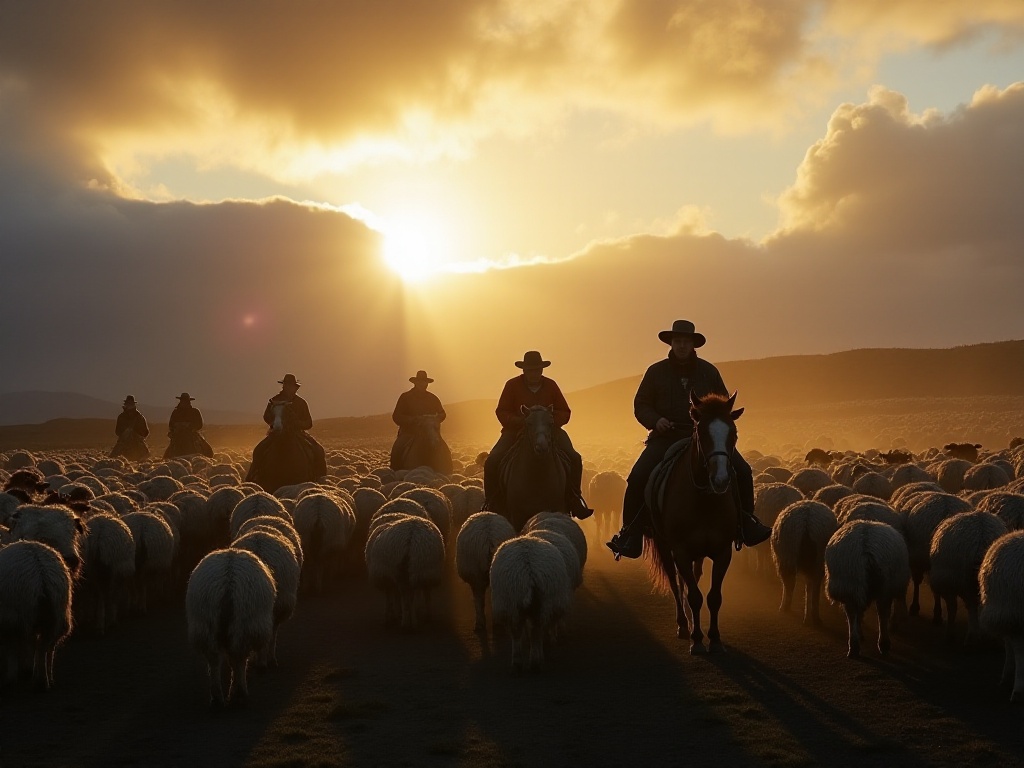
Festival Celebrations
Speaking of the most impressive cultural experiences, Mexico's Day of the Dead tops the list. Many might think "Day of the Dead" sounds scary, but it's actually a joyous festival. I specifically chose to visit Oaxaca in late October, the birthplace of this celebration.
The entire city was filled with the fragrance of marigolds and colorful paper decorations everywhere. Households set up altars in front of their doors with photos of deceased relatives, their favorite foods, and beautiful sugar skulls. Locals believe that on this day, departed loved ones return to reunite with their families. You see people with skull face paint but happy eyes, and streets filled with singing and dancing crowds.
At India's Holi festival, I had another unforgettable experience. I went out wearing white clothes (as locals suggested) and was soon surrounded by Indian children. With different colored powders in their hands, chattering in Hindi, they started smearing colors on me. I got caught up in the excitement, chasing people around the streets throwing colored powder. By the end, I was covered in an abstract painting, but that pure joy is indescribable.
In Siem Reap, Cambodia, I participated in a traditional blessing ceremony. In the early morning at Angkor Temple, several monks in robes sat on cushions, chanting blessings for us. They sprinkled water with branches dipped in perfume, said to dispel bad luck and bring good fortune. Though I couldn't understand the Pali scriptures, the solemn atmosphere made me feel the sacredness of Buddhist culture.

Living Experience
My time as a farm volunteer in Tuscany, Italy, was probably when I came closest to finding "poetry and distant lands." When I first arrived at the farm, Antonio, the owner, said, "Here, we measure time by the sun, not by watches."
At dawn, when the first rays of sunlight hit the vineyard, we would begin our day's work. Grape picking isn't casual work - you need to carefully judge the ripeness of each bunch and avoid damaging the natural bloom on the grapes. At noon, we would picnic under olive trees with bread, cheese, ham, and homemade wine - simple but delicious.
Dinner time was what I looked forward to most. Maria, the farm owner's wife, would teach me how to make pasta from scratch - kneading, rolling, and finally cutting it into fine noodles. The sauce was also homemade, slowly cooked with home-grown tomatoes and herbs. During meals, the whole family would gather, eating and chatting, with no regard for time.
Participating in Rettir in Iceland was truly an interesting experience. This annual sheep roundup involves the whole village gathering to bring back sheep that have grazed freely in the mountains all summer. Despite my poor horse-riding skills, everyone enthusiastically included me. Watching hundreds of sheep streaming down from the mountains was spectacular. Afterwards, everyone had to sort the sheep, separating them by farm. Though I couldn't help much, just watching them skillfully identify sheep markings was fascinating.
On the grasslands of Kyrgyzstan, I stayed in a nomadic family's yurt. Waking up to horses neighing, drinking fresh kumis, watching herders skillfully milk mares. At night, lying in the yurt, looking at stars through the top opening while listening to the host play the komuz (a traditional instrument) and sing ancient epic poems - this connection with nature is something impossible to experience in cities.
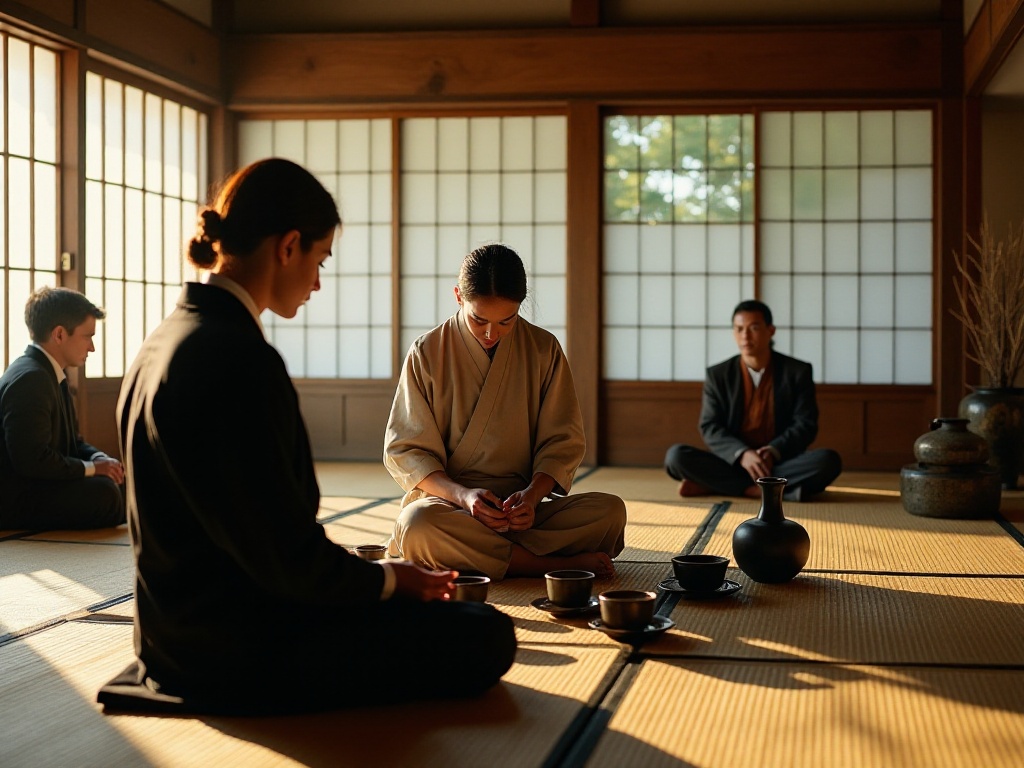
Language Interaction
Many consider language the biggest barrier when traveling, but if you're willing to learn some simple local phrases, it can open many unexpected doors. In Japan, although I only knew "Arigato" (thank you) and "Ohayo" (good morning), using these words to greet locals always made them very happy.
Once when I got lost in Tokyo, I asked for directions in broken Japanese and met an elderly gentleman. He not only gave detailed directions but personally led me to the subway station, teaching me simple Japanese phrases along the way. Before leaving, he even gave me an omamori charm for safe travels. These heartwarming experiences are the most precious travel memories.
In Moroccan markets, I learned a few Arabic bargaining phrases. Though my pronunciation was probably amusing, the vendors played along, making exaggerated surprised expressions before starting to negotiate. I not only got the items I wanted but also gained lots of joy from the interactions.
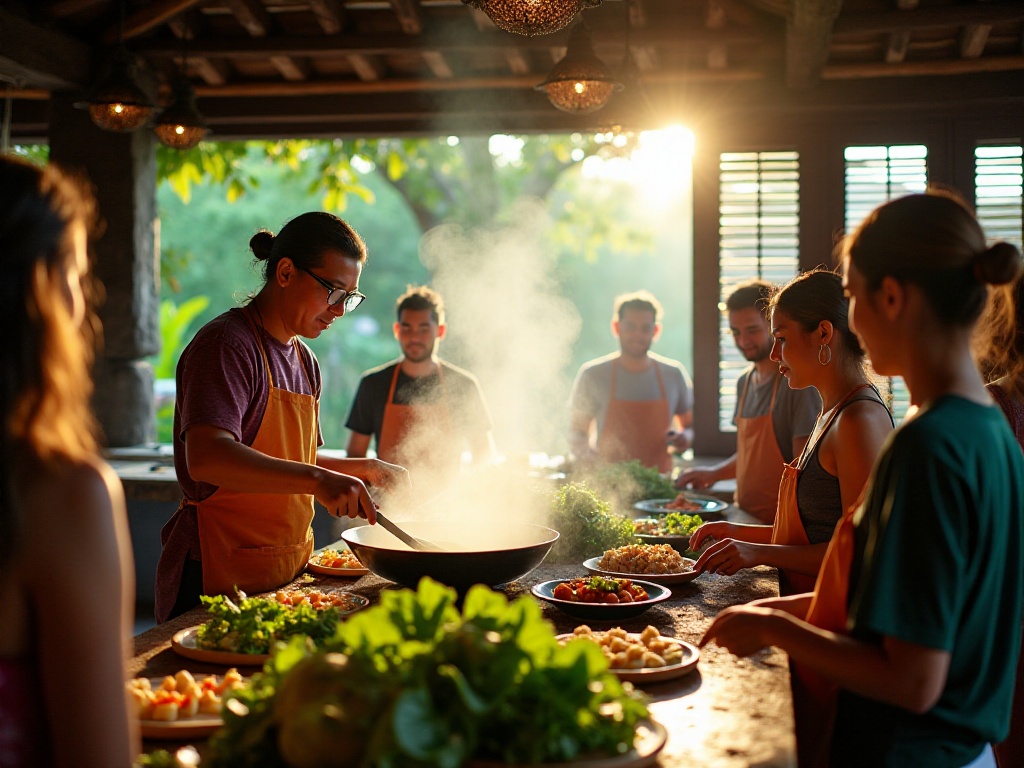
Personal Growth
These years of deep cultural experiences have brought enormous changes to me. Previously, I might have been prejudiced against unfamiliar cultural customs, but now I've learned to understand different lifestyles with a more inclusive mindset.
For instance, in India, I was initially uncomfortable eating with my hands, thinking it unhygienic. But after talking with local friends, I learned that in Indian culture, food is sacred, and eating with hands shows respect for the food. After understanding this cultural significance, I began to appreciate this way of dining.
In African tribes, I learned to set aside urban arrogance. While people there may not be materially wealthy, their content and happy attitude towards life made me reflect: Is our pursuit of material life really the standard of happiness?
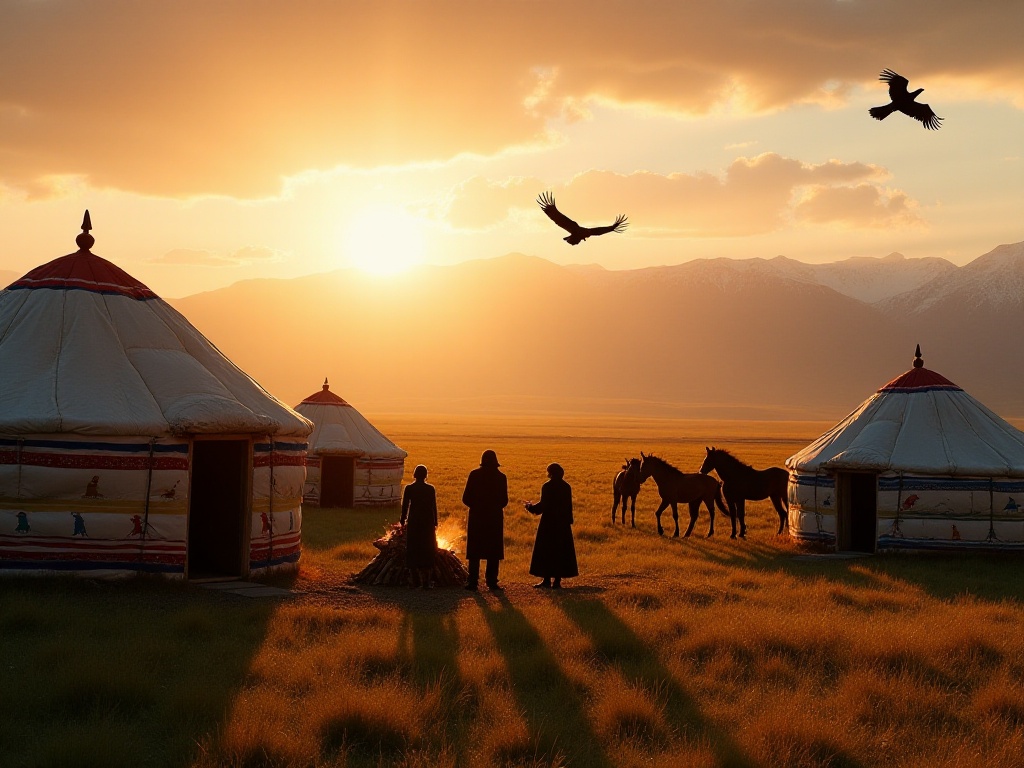
Concluding Thoughts
What is travel really for? Is it to show off on social media? To complete a checklist of tourist spots? Or to truly understand this world and different ways of life?
Everyone might have different answers. But for me, true travel should be a spiritual journey - using your heart to feel different cultures, meet different people, and experience different lives. Tourist attractions will age, but those sincere smiles, warm hugs, and touching moments are the most precious travel souvenirs.




